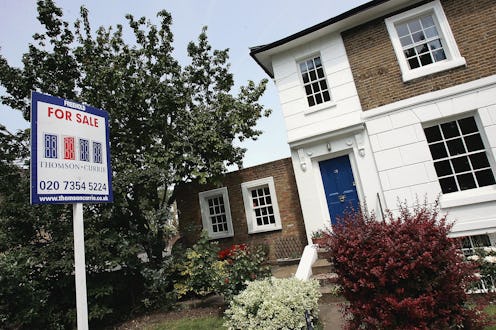Life
What to Know Before Getting Your First Mortgage
Having a house to call your own is everyone’s dream — you can fix it up however you want to, you don't have to bug a landlord to get something done, and you actually own something. But buying a house isn't that simple, and if you make a mistake applying for your mortgage, it might prevent you from, well, actually owning something.
The first step to buying a house is setting a budget and finding a house you can afford. If you haven't prepared well enough beforehand, there are several mistakes that could raise the rate of the loan, or even cause your mortgage to be declined. One of the most common issues among home buyers is having a low credit score. But even if you have a good credit score, and not a long enough credit history, you can still get declined. Yikes. It's not the end of the world if you are declined, of course, but you'll probably have to spend more time fixing your mistakes and make another attempt at a mortgage later on.
If you're thinking about applying for a mortgage, here's a list of mistakes that can hinder your ultimate dreams of home sweet home.
1. You didn’t put enough of a down payment down (or any at all.)
Yup, you have to bring a certain percentage of what a house is worth to the table. According to Zillow, that could be anywhere from 5 to 20 percent of the cost of the house. This will lower the cost of your loan, and shows banks you’re serious about making your mortgage. You need to make it rain if you want a house.
2. You didn’t do the math.
Cool, you have a down payment, but did you calculate property taxes and what your monthly mortgage would be for the next 30 years of paying off that loan? Yipe! Better make sure you have it all planned out. Basically, if your mortgage costs more than 28 percent of your total monthly debt, you'll have a hard time convincing the bank it should give you a loan.
3. You didn’t check your credit.
Okay, so you have a down payment and think you can handle a 30-year loan. But did you check your credit score? If it’s too low, a bank might charge you a higher mortgage rate or, sadly, reject your loan. Make sure you’re paying all of your bills on time and keeping your credit card at less than 20 percent of the limit. The FTC has a list of ways you can check your credit.
4. You don't have any credit.
Whoops! You need at least three lines of credit with at least a two year history on each line so a bank can evaluate you as someone to lend to.
5. You opened new lines of credit while finalizing your loan.
Similarly, your credit might be good when getting a loan, but if you start to rack up expenses while closing the deal, the bank could end up changing the rate on you due to new expenditures. Your debt-to-income ratio needs to stay under 43 percent, in most cases, to qualify for a mortgage. Too many expenditures might change that percentage and cause concerns for the bank. Play it safe until you’re in the clear.
6. You have way too much debt.
Some debt is fine, but if your debt-to-income ratio is too high, a bank probably won't approve you. Make sure to calculate all of your debts and use calculators, like this one on Zillow, to easily estimate what that ratio might be for you.
7. You didn’t get pre-approved.
In order to put a down payment on a house, you need to know how much you can actually expect the bank to loan you. It doesn't work the other way around. Know what the bank will lend you, and then find a house in that range.
8. You haven't been working long enough.
Banks want to be sure you can make money — and continue to make money — to pay for the loan. Therefore, you need to have at least two consecutive years of employment at the same employer.
Written by Haniya Rae
